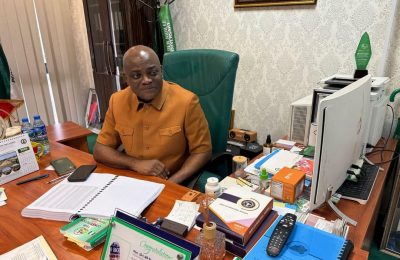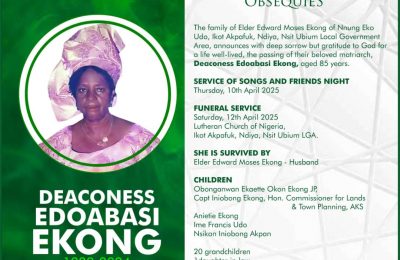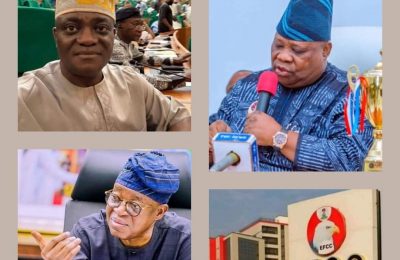Sunday Ejike – Abuja

A medical doctor and internal medicine specialist based in New York, United States, Dr Adah Edache Obekpa has asked the Federal High Court in Abuja for an order directing the Independent National Electoral Commission (INEC) and the Federal Government to compensate him and his organization with the sum of N77 billion for their novel and innovative I-Voting proposal to the electoral body in 2010, which birthed the Bimodal Voter Accreditation System (BVAS) and I-REV platform of INEC.
In the suit marked, FHC/ABJ/CS/391/2023, Dr Obekpa and Renaissance Network Africa are the plaintiffs, while INEC, the Attorney General of the Federation (AGF) and a firm, Layers3 Ltd are first to third defendants.
The plaintiffs want the court to order the defendants to publicly recognize and acknowledge them and their team who were involved in the preparation and design of the I-Voting proposal to INEC since 2010.
They also plead with the court to award the sum of N500 million as general damages to them against the defendants for the suppression of their exclusive legal right to the I-Voting proposal by INEC since 2010.
They want the court to declare that their I-Voting proposal to INEC is the same in contents, features and operation as the BVAS and I-REV systems.
“A declaration that the plaintiffs’ I-Voting proposal was routed through the third defendant and same was received and duly acknowledged by the first defendant in 2010.
“A declaration that the plaintiffs are entitled to be nationally recognized, acknowledged and compensated by the first defendant and the Federal Government for their novel and innovative I-Voting proposal to the first defendant which birthed the BVAS and I-REV system.
“In a statement of claim, the first defendant avers that, as a Nigerian who is interested in the transparent electoral process and having constantly witnessed seamless electoral processes elsewhere in the world, he and his team, which includes the second plaintiff came up with an innovative and novel I-Voting system that will ensure free, fair and credible election for sustainable democracy in Nigeria as far back as 2010.
“That, the said I-Voting system proposal was conceived to ensure that valid votes cast in any elections in Nigeria are not altered or eliminated from the final tally, while invalid votes are also not allowed or counted in the final tally by unscrupulous elements who aid desperate politicians to rig elections.”
According to the first plaintiff, the essence of the concept was to ensure the integrity, completeness and the soundness of electoral system in Nigeria.
He said he was propelled to suggest the I-Voting technology to INEC after reading in an online medium on July 18, 2010, a frightening and shocking expose by a former governor of Cross River state, Donald Duke of how elections are rigged in the country.
They aver that the I-Voting proposal for INEC was submitted on their behalf by the third defendant and the same was received by INEC sometime in 2010 and further stated that they deployed both financial and human resources to create and design the I-Voting proposal to INEC in 2010.
They said they shall, at the trial demonstrate that the technology proposed and submitted to INEC is what has now been christened the BVAS which INEC first used in the off-season governorship elections in Ekiti and Osun states and the 2023 general elections.
“The plaintiffs aver that they retain the exclusive and assignable legal right to the I-Voting proposal to INEC document as the originators of the same”, they said and further
held that they are entitled to be recognized and compensated by INEC and the Federal Government for being the originators of the proposal for the use of the E-Voting system now demonstrated by the use of the BVAS and I-REV by INEC for the benefit of the government and people of Nigeria.
READ ALSO FROM NIGERIAN TRIBUNE







